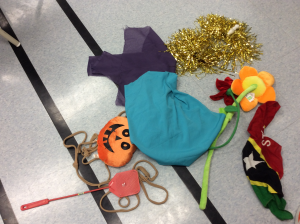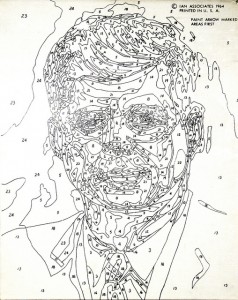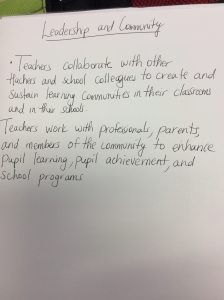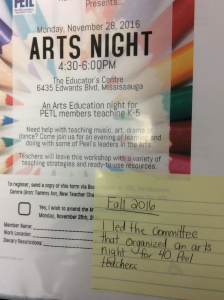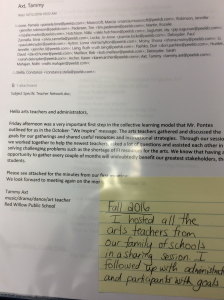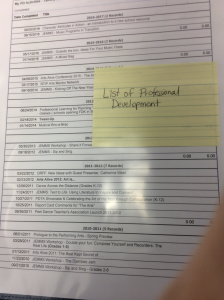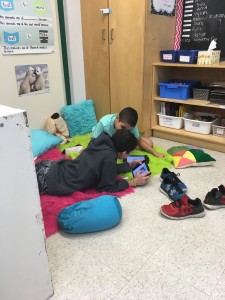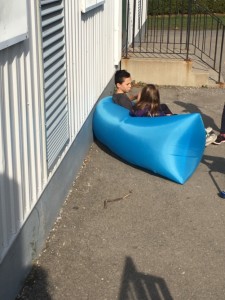Sometimes getting our older students to dance with each other is a challenge. Being touched or touching others can be so uncomfortable for them. I know exactly how they feel. I was one of the first members of my class in grade four to hit puberty with the force of a train. I remember what it was like to be so uncomfortable with anyone in my personal space or to have anyone look, comment or touch my body in any way . As a result, I really empathize with my students when they are shy or uncomfortable about personal space. One idea my teacher partner and I came up with to help with this issue was to create a dance unit that required students to dance with props instead of each other. Below I have outlined the student and teacher instructions of our unit.
Grade Five Spatial Relationship Dance
Student Instructions
Learning Goals
- Demonstrate the use of five different spatial relationships with a prop.
- Demonstrate the form ‘Call and Response’
Spatial Relationships
Over/Under
Around
In-front/Behind
On/Off
Beside
Through
In/Out
Call
PARTNER 1 – performs a 4 or 8 count movement with a prop that demonstrates the use of a spatial relationship such as ‘over’. Partner 2 remains still while Partner 1 performs.
Response
PARTNER 2 – Then Partner 2 performs a 4 or 8 count movement with a prop that demonstrates the use of the same spatial relationship (such as over) as their partner but the movement must be different.
This call and response pattern is repeated five times.
Dance Plan Example:
| Spatial Relationship | Partner 1 | Partner 2 |
| 1. Over/Under | Jump and Spin | Twist and Gallop |
Criteria
- Dance with a prop using 5 different spatial relationships
- Use the form ‘Call & Response’
- Create movement that uses your whole body
- Use both locomotor and non-locomotor movements
Next Steps: Show a preliminary performance to the teacher to get some next steps to help in the creative process
Student Reflection – Identify the two sections of the dance that you liked the best. Explain why these were your favourite.
Teacher Instructions:
- Explain to students that spatial relationships have to do with how we relate to an object or person in space. Prepositions are used to describe spatial relationships. (Provide a list of prepositions.)
- Introduce the concept of spatial relationships in any of the following ways: using a prop, using your own body, or using a partner.
- Introduce the criteria for this dance emphasizing that the spatial relationships will be done with a prop.
- Explain that the form ‘Call and Response’ is used when you see a dance battle. This dance will use the same form but is not meant to be a ‘battle’. Each partner will create their own movement.
- Provide a variety of props for students to use to stimulate creativity.
- When students begin to create their dances, watch to see if they are following the criteria listed on the student handout sheet.
Here is a picture that includes some of the props we used for our unit.
